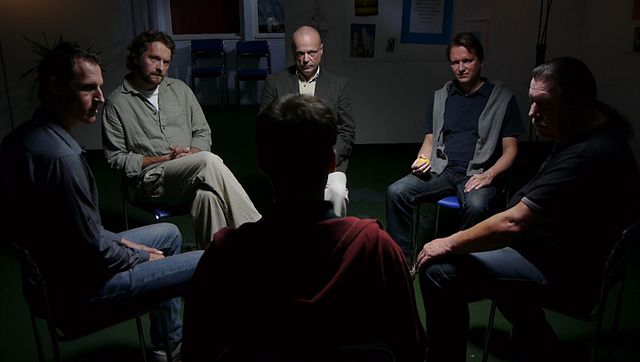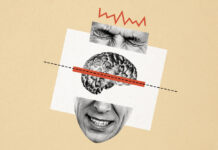Researchers from the University of Michigan and the University of Manchester studied the effectiveness of psychosocial interventions for reducing suicidality in people who experience psychosis.
Through a systematic literature review and meta-analysis, the study authors, led by Lindsay Bornheimer, found that psychosocial interventions—or “nonpharmacological therapeutic interventions that address the psychological, social, personal, relational, or vocational problems associated with mental disorders”—significantly reduced suicidal ideation, planning, and deaths for this population.
 Suicide has been steadily increasing in the United States, and people who experience psychosis are at 10 to 20 times at higher risk of attempting suicide than the general population. Studies report that 40-50% of people with experiences of psychosis also have suicidal thoughts, 20-50% attempt suicide, and 4-13% end their lives.
Suicide has been steadily increasing in the United States, and people who experience psychosis are at 10 to 20 times at higher risk of attempting suicide than the general population. Studies report that 40-50% of people with experiences of psychosis also have suicidal thoughts, 20-50% attempt suicide, and 4-13% end their lives.
Those diagnosed with psychotic disorders are more likely to be involuntarily hospitalized, and these hospitalizations are known to increase the risk of suicidality—further increasing the vulnerability of this population. Increased medication use also raises the risk of suicide, and hopelessness experienced during the first episode of psychosis has also been found to predict suicide attempts years later.
Cognitive-Behavioral Therapy (CBT), a popular form of talk therapy, has been found to reduce the risk of suicide by half, but these studies have rarely included people with psychosis in their samples. A previous systematic review suggested that psychosocial interventions may be useful in reducing suicidal behavior in patients diagnosed with ‘schizophrenia’ and other psychotic disorders, but due to the limited number of studies, no meta-analysis was produced.
Now, seven years after that study, the researchers sought to produce a systematic review and a meta-analysis to assess the effectiveness of suicide-focused psychosocial interventions for people who experience psychosis.
The researchers found that all studies suggested that psychosocial interventions were related to a decrease in suicidal ideation, plans, attempts, and deaths of psychotic patients. In terms of treatment effects, the researchers found that this kind of treatment reduced suicidal ideation and death by suicide but found no impact on suicide attempts.
“Our finding that psychosocial interventions were related to a significant decrease in the suicide ideation, plan, attempt, and death outcomes among individuals with psychosis is promising. A significant treatment effect for psychosocial interventions in relation to ideation and suicide death was found, but no effect was found for attempts.”
They explain that many of these studies did not measure changes in attempted suicide, and thus possible changes were not documented or reported. They also report that in studies where attempts were measured, suicidal ideation was reduced, and suicide attempts were less likely to be reported or measured.
The outcomes were particularly favorable for people who received treatment during their first psychotic episode, which suggests that psychosocial interventions reduce the risk factors of suicide associated with these initial episodes.
Most of the participants had received either a mix between CBT and supportive interventions or CBT alone, which provide more evidence for the effectiveness of this treatment for the reduction of suicidality.
Interventions varied significantly in length, lasting between 6 weeks and five years. These interventions were provided by individual practitioners (psychiatrists, psychologists, social workers), but more recent studies showed that interdisciplinary behavioral health treatment was also effective.
This meta-analysis provides evidence for the effectiveness of psychosocial interventions in reducing the suicidality of psychotic patients. These results are especially crucial as traditional psychiatric interventions such as involuntary hospitalizations and psychopharmacological treatment have not only failed at reducing suicidality but might contribute to increased suicide risk.
****
Bornheimer, L. A., Zhang, A., Li, J., Hiller, M., & Tarrier, N. (2020). Effectiveness of Suicide-Focused Psychosocial Interventions in Psychosis: A Systematic Review and Meta-Analysis. Psychiatric Services, appi.ps.2019004. doi:10.1176/appi.ps.201900487 (Link)















You don’t commit suicide while on B3, either, but you’ll see Hell freeze over before you see a conventional shrink use it at all, much less at therapeutic levels.
Report comment
Actually, my psychiatrist did recommend B vitamins, as he was weaning me off his neurotoxins. Although I don’t recall whether B3 was specifically recommended, nor whether those vitamins were recommended at therapeutic levels. I’d have to double check my medical records and look into what actually are “therapeutic levels.”
Report comment
“Interventions varied significantly in length, lasting between 6 weeks and five years.”
If it lasted that long, how did they isolate the effects of the therapeutic relationship and positive changes in a person’s life on eventual outcome?
It seems overly simplistic and misleading to solely attribute change or positive outcomes to the so-called treatment and ignore a myriad of other factors including the fact that people are not passive recipients of “interventions”, but resourceful, meaning-making, self-acting agents who can reflect on the treatment they “receive” and decide if and how that is incorporated in their lives.
A more humble stance would be to say that there are many factors and circumstances that contribute to positive changes and we believe that particular psychological techniques may play some role. At best we can only make probalistic generalisations from those who met the strict inclusion criteria for the studies to any other individual out in the community.
Report comment
This is “research” to stall psychiatry from being crippled.
Report comment
This is also “research” to re-empower the systemic child abuse covering up psychological industry, while they propagate and maintain the scientific fraud based DSM theology, of their systemic child abuse covering up DSM believing psychiatric partners in crime.
https://www.indybay.org/newsitems/2019/01/23/18820633.php?fbclid=IwAR2-cgZPcEvbz7yFqMuUwneIuaqGleGiOzackY4N2sPeVXolwmEga5iKxdo
https://www.madinamerica.com/2016/04/heal-for-life/
https://www.psychologytoday.com/us/blog/your-child-does-not-have-bipolar-disorder/201402/dsm-5-and-child-neglect-and-abuse-1
Report comment
New title: “Being kind and communicating with people makes them feel less hopeless about their lives.”
Or: “Talking and listening to people makes them feel better than telling them their case is hopeless and giving them drugs for life.”
Report comment
“Being kind and communicating with people makes them feel less hopeless about their lives.” “Talking and listening to people makes them feel better than telling them their case is hopeless and giving them drugs for life.”
Yes, but the majority of DSM “bible” believing “mental health professionals” have been gas lighting, and neurotoxic poisoning, innocent people for decades instead. Primarily to cover up child abuse, according to the “mental health professions'” own medical literature, and my family’s own medical records.
Personally I believe both the psychological and psychiatric industries, and their many DSM deluded “mental health” and social worker minion, need to get out of the systemic, DSM mandated, child abuse covering business, for the mainstream religions, and our seemingly pedophile ruled government.
Report comment
But if the systemic, child rape covering up psychological and psychiatric industries, don’t ever choose to stop committing those crimes. I do hope and pray that they are judged fairly by God, for being the systemic child rape covering up criminals that they actually are.
Report comment